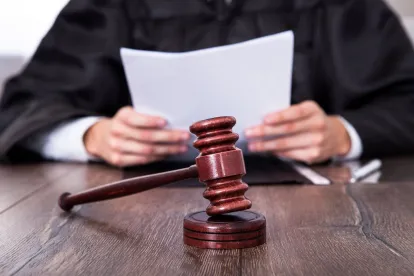An all too typical fact pattern involves a small-time ne’er-do-well infringing on the rights of a much bigger corporation. When the corporation is forced to bring a lawsuit, the “little guy” infringer cries poverty and seeks a settlement. An oft-used tactic of corporations is to settle the matter quickly (and before too much in attorneys’ fees has been incurred) for a relatively modest sum (or even no money at all) while also including a mechanism by which any breach of the settlement agreement triggers the filing of an agreed judgment for a large sum of money.
A recent Ninth Circuit decision, In Re Richard L. Priddis, 2023 WL 2203562 (9th Cir. 2023) (Unpub.), highlights an under-examined issue with those judgments – specifically, the ability of the judgment holders to enforce them via involuntary bankruptcy when there are multiple plaintiffs/claimants.
In the Priddis case, the infringer (Priddis) had settled a copyright infringement suit related to a karaoke business. As part of that settlement agreement, the plaintiffs in the underlying matter (various record companies) obtained the right to file and enforce a $3 million agreed judgment if Priddis breached the settlement agreement.
Lo and behold, at some point Priddis breached the agreement and the record companies filed the judgment. Following entry of the agreed judgment by the district court and in order to collect as much of the $3 million as possible, the music companies instituted involuntary bankruptcy proceedings against Priddis.
In the bankruptcy court, Priddis moved for summary judgment. Under the bankruptcy code, only those holding an independent claim against the debtor can institute an involuntary bankruptcy proceeding. Priddis argued that the $3 million agreed judgment was a single joint claim because it did not spell out how much of the three million each plaintiff received. In other words, Priddis argued that rather than each music company having its own claim for a portion of the $3 million, they all collectively had a joint claim for the full amount.
Both the bankruptcy court and the district court agreed with Priddis and granted (and affirmed) summary judgment in his favor. The music companies appealed to the Ninth Circuit.
On appeal, the panel’s majority focused on the bankruptcy code’s definition of a claim, which is “right to payment, whether or not such right is reduced to judgment.” 11 U.S.C. § 101(5)(A). Based on this definition, the majority held that an individual claim exists where the judgment amount is “easily divisible” and the allocation is “traceable to each creditor.”
The music companies argued that this was present because the amount to which each plaintiff would be entitled could be easily traced to the percentage of interest of the number of songs at issue, which information was detailed in the bankruptcy petition. Priddis responded that a written agreement among the plaintiffs as to how the share would be apportioned was necessary. Ultimately, the majority rejected this strict requirement and sided with the music publishers because it was able to determine how to apportion the $3 million judgment easily.
Our Take
This case presents some of the real and unexpected problems that can arise when attempting to enforce high value judgments. While the music publishers here were able to get a victory (eventually), it was a costly one both in terms of time to enforcement and in attorneys’ fees.
In order to avoid problems like those presented here, it is best to apportion any potential judgment at the time it is agreed to so that it will be viewed as more enforceable in the event of involuntary bankruptcy proceedings. This not only makes sense for the legal reasons highlighted by Priddis but also for the practical reason that, at the time of the settlement and agreed judgment, all the parties are invested, knowledgeable, and working to get a deal done.
The case is In Re Richard L. Priddis, 2023 WL 2203562 (9th Cir. 2023) (Unpub.).




 />i
/>i

